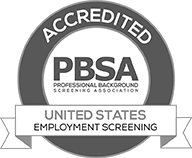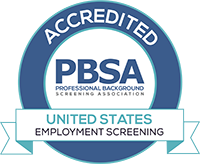BLOG
A Court Rules in Favor of Texas Over EEOC Guidelines
February 20, 2018
The state of Texas has been fighting a legal battle to become exempt from certain EEOC Guidelines since 2013. They recently won an important decision.
History
The Equal Employment Opportunity Commission (EEOC) issued a document in 2012 known as the Consideration of Arrest and Conviction Records in Employment Decisions Under Title VII of the Civil Rights Act of 1964. It was created to help prevent employers from discriminating against job seekers who have a criminal history.
Prior to releasing this Guidance, the EEOC did not provide notice to the public or offer an opportunity for people to comment, which is required by the Administrative Procedures Act. In 2013, the state of Texas filed a lawsuit against the EEOC claiming that they should not have to follow some of the rules established by this Guidance. Key areas of contention were sections that disallow employers from automatically disqualifying convicted felons from certain positions and that employers must perform individualized assessments on candidates who have a criminal history.
Texas law calls for some state agencies to automatically exclude candidates who have felony convictions. Ken Paxton, the Attorney General of Texas, believes the Guidance establishes a risk to public safety and feels that Texas has: "the sovereign right to impose categorical bans on the hiring of criminals for such jobs as state troopers, school teachers and jailers."
The Lawsuit
Since 2013, Texas has continued to seek legal exemption from the EEOC Guidance. In 2017, the state and the EEOC agreed to move for a summary judgment. Texas requested the right to prevent all felons from being allowed to work for the state or legislature in any capacity. This request was denied as the state was deemed to have many employment opportunities in which felons could be granted employment without posing any risk to the public.
Although Texas did not did not get everything they requested, the court agreed that the EEOC did not follow APA requirements before issuing their Guidance. Therefore, the court determined that Texas is exempt from the Guidance until the EEOC complies with the APA's requirement.
About the EEOC
The EEOC is responsible for enforcing federal laws that are intended to prevent discrimination against job applicants and employees. In most cases, the laws they enforce cover employers that have a staff of at least 15 people. EEOC enforcement applies to various aspects of employment including hiring, promotions and wages.
EEOC officials also investigate charges of discrimination against employers. Once an investigation is complete, they make a determination about whether or not discrimination occurred and then work to settle the issue (if necessary). In some cases they may resort to filing lawsuits against employers that are accused of discriminatory practices.
Learn more about the EEOC.
How the Texas Decision Affects Employers
Currently, this decision only affects employers in Texas. However, the court's decision could encourage other states to file similar lawsuits against the EEOC.
There are numerous laws that cover the hiring and background screening process. When new laws are passed or existing laws are updated, it is essential for employers to comply. The team at Backgrounds Online strives to continually keep up with laws that affect employers. Follow our blog for useful information about compliance, screening best practices and other important topics.
If you have questions about how we can help your business with screening and compliance, please contact us today.











